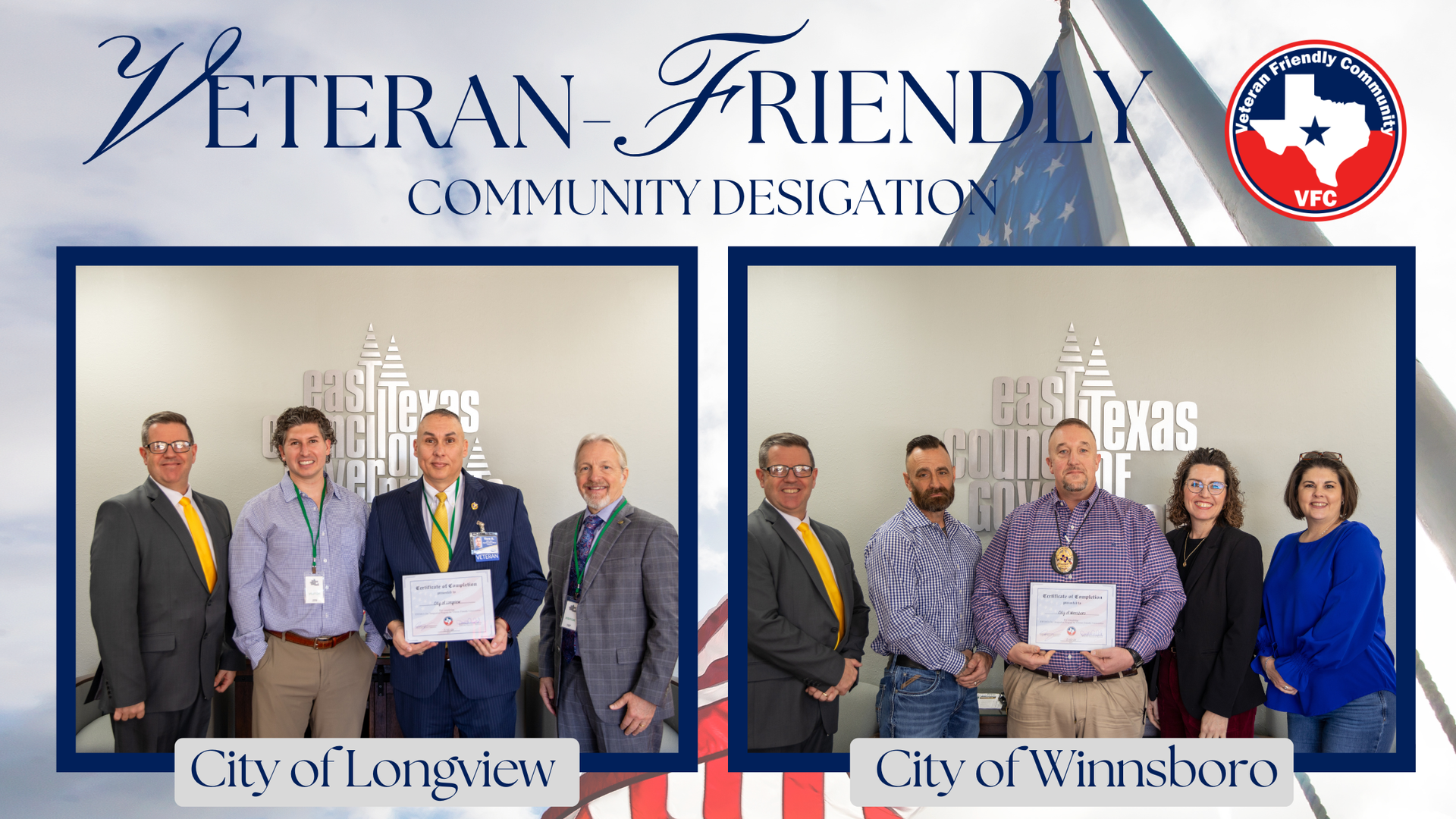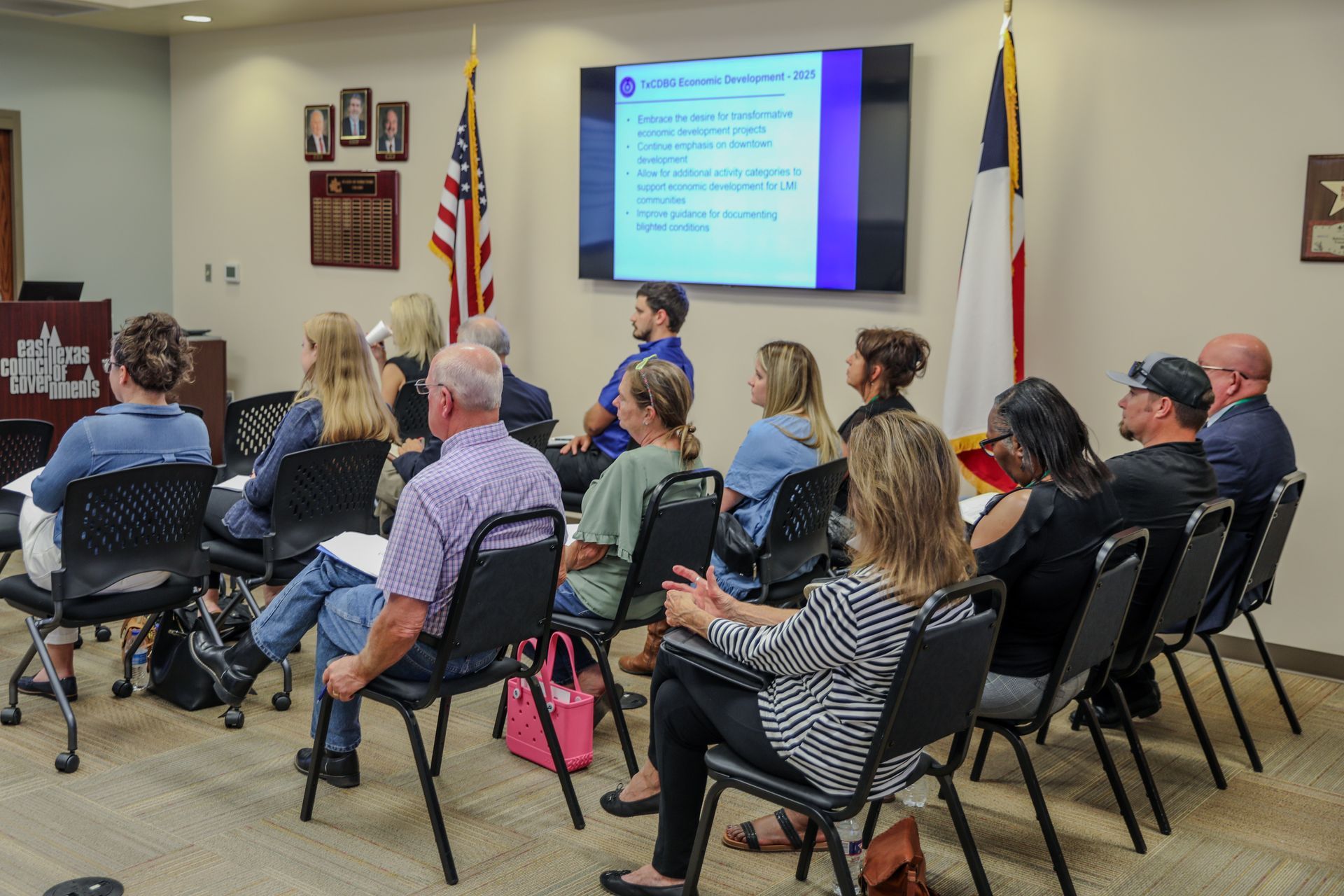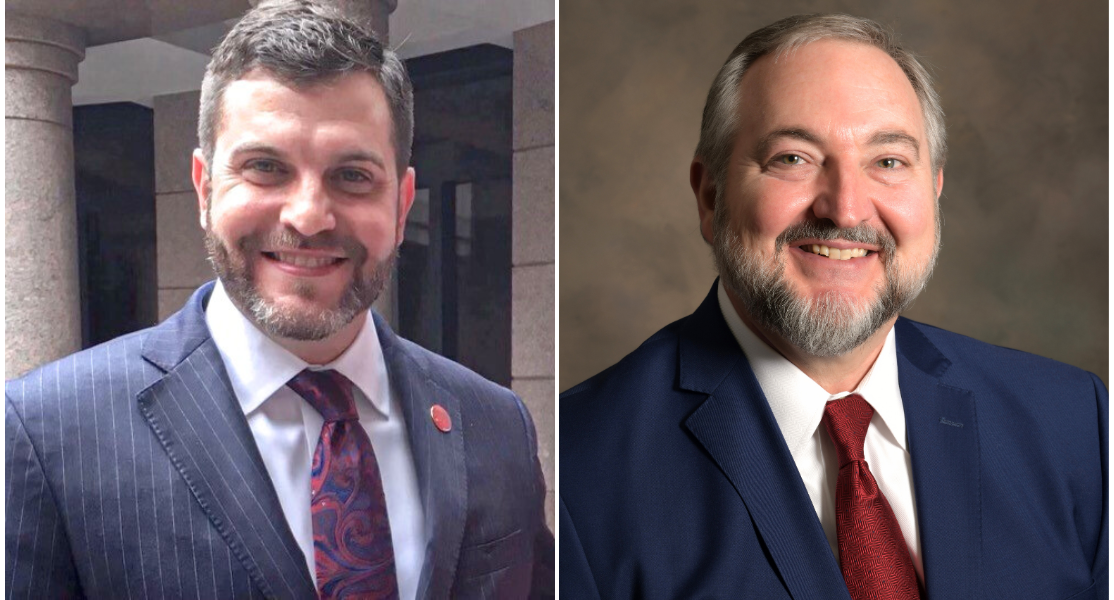Governor Abbott Issues Executive Order To Expand Openings Of Certain Businesses and Activities
Office of the Texas Governor, Greg Abbott • May 5, 2020

WHEREAS, I, Greg Abbott, Governor of Texas, issued a disaster proclamation on March 13, 2020, certifying under Section 418.014 of the Texas Government Code that the novel coronavirus (COVID-19) poses an imminent threat of disaster for all counties in the State of Texas; and
WHEREAS, on April 12, 2020, I issued a proclamation renewing the disaster declaration for all counties in Texas; and
WHEREAS, the Commissioner of the Texas Department of State Health Services (DSHS), Dr. John Hellerstedt, has determined that COVID-19 represents a public health disaster within the meaning of Chapter 81 of the Texas Health and Safety Code, and renewed that determination on April 17, 2020; and
WHEREAS, I have issued executive orders and suspensions of Texas laws in response to COVID-19, aimed at protecting the health and safety of Texans and ensuring an effective response to this disaster; and
WHEREAS, I issued Executive Order GA-08 on March 19, 2020, mandating certain obligations for Texans in accordance with the President’s Coronavirus Guidelines for America, as promulgated by President Donald J. Trump and the Centers for Disease Control and Prevention (CDC) on March 16, 2020, which called upon Americans to take actions to slow the spread of COVID-19 for 15 days; and
WHEREAS, I issued Executive Order GA-14 on March 31, 2020, based on the President’s announcement that the restrictive Guidelines should extend through April 30, 2020, in light of advice from Dr. Anthony Fauci and Dr. Deborah Birx, and also based on guidance by DSHS Commissioner Dr. Hellerstedt and Dr. Birx that the spread of COVID-19 can be reduced by minimizing social gatherings; and
WHEREAS, Executive Order GA-14 superseded Executive Order GA-08 and expanded the social-distancing restrictions and other obligations for Texans, aimed at slowing the spread of COVID-19 and protecting public health and safety; and
WHEREAS, after more than two weeks of having in effect the heightened restrictions like those required by Executive Order GA-14, which had saved lives, it was clear that the disease still presented a serious threat across Texas that could persist in certain areas, but also that COVID-19 had wrought havoc on many Texas businesses and workers affected by the restrictions that were necessary to protect human life; and
WHEREAS, on April 17, 2020, I therefore issued Executive Order GA-17, creating the Governor’s Strike Force to Open Texas to study and make recommendations on safely and strategically restarting and revitalizing all aspects of the Lone Star State—work, school, entertainment, and culture; and
WHEREAS, also on April 17, 2020, I issued Executive Order GA-16 to generally continue through April 30, 2020, the same social-distancing restrictions and other obligations for Texans according to federal guidelines, but also to offer a safe, strategic first step to Open Texas, including permitting retail pick-up and delivery services; and
WHEREAS, I subsequently issued Executive Order GA-18 on April 27, 2020, to expand the services that are reopened in Texas, including allowing in-store retail and dine-in restaurant services at establishments operating within specific capacity limits; and
WHEREAS, as normal business operations resume, everyone must act safely, and to that end Executive Order GA-18 and this executive order provide that all persons should follow the health protocols recommended by DSHS, which whenever achieved will mean compliance with the minimum standards for safely reopening, but which should not be used to fault those who act in good faith but can only substantially comply with the standards in light of scarce resources and other extenuating COVID-19 circumstances; and
WHEREAS, Texas must continue to protect lives while restoring livelihoods, both of which can be achieved with the expert advice of medical professionals and business leaders; and
WHEREAS, the “governor is responsible for meeting … the dangers to the state and people presented by disasters” under Section 418.011 of the Texas Government Code, and the legislature has given the governor broad authority to fulfill that responsibility; and
WHEREAS, under Section 418.012, the “governor may issue executive orders … hav[ing] the force and effect of law;” and
WHEREAS, under Section 418.016(a), the “governor may suspend the provisions of any regulatory statute prescribing the procedures for conduct of state business … if strict compliance with the provisions … would in any way prevent, hinder, or delay necessary action in coping with a disaster;” and
WHEREAS, under Section 418.017(a), the “governor may use all available resources of state government and of political subdivisions that are reasonably necessary to cope with a disaster;” and
WHEREAS, under Section 418.018(c), the “governor may control ingress and egress to and from a disaster area and the movement of persons and the occupancy of premises in the area;” and
WHEREAS, under Section 418.173, failure to comply with any executive order issued during the COVID-19 disaster is an offense punishable by a fine not to exceed $1,000, confinement in jail for a term not to exceed 180 days, or both fine and confinement.
NOW, THEREFORE, I, Greg Abbott, Governor of Texas, by virtue of the power and authority vested in me by the Constitution and laws of the State of Texas, do hereby order the following on a statewide basis effective immediately, and continuing through May 19, 2020, subject to extension based on the status of COVID-19 in Texas and the recommendations of the Governor’s Strike Force to Open Texas, the White House Coronavirus Task Force, and the CDC:
In accordance with guidance from DSHS Commissioner Dr. Hellerstedt, and to achieve the goals established by the President to reduce the spread of COVID-19, every person in Texas shall, except where necessary to provide or obtain essential services or reopened services, minimize social gatherings and minimize in-person contact with people who are not in the same household. People over the age of 65, however, are strongly encouraged to stay at home as much as possible; to maintain appropriate distance from any member of the household who has been out of the residence in the previous 14 days; and, if leaving the home, to implement social distancing and to practice good hygiene, environmental cleanliness, and sanitation.
“Essential services” shall consist of everything listed by the U.S. Department of Homeland Security (DHS) in its Guidance on the Essential Critical Infrastructure Workforce, Version 3.0 or any subsequent version, plus religious services conducted in churches, congregations, and houses of worship. Other essential services may be added to this list with the approval of the Texas Division of Emergency Management (TDEM). TDEM shall maintain an online list of essential services, as specified in this executive order and any approved additions. Requests for additions should be directed to TDEM at EssentialServices@tdem.texas.gov
or by visiting the TDEM website at www.tdem.texas.gov/essentialservices.
“Reopened services” shall consist of the following to the extent they are not already “essential services:”
- Retail services that may be provided through pick-up, delivery by mail, or delivery to the customer’s doorstep.
- In-store retail services, for retail establishments that operate at up to 25 percent of the total listed occupancy of the retail establishment.
- Dine-in restaurant services, for restaurants that operate at up to 25 percent of the total listed occupancy of the restaurant; provided, however, that
- this applies only to restaurants that have less than 51 percent of their gross receipts from the sale of alcoholic beverages;
- the occupancy limits do not apply to customers seated in outdoor areas of the restaurant; and
- valet services are prohibited except for vehicles with placards or plates for disabled parking.
- Movie theaters that operate at up to 25 percent of the total listed occupancy of any individual theater for any screening.
- Shopping malls that operate at up to 25 percent of the total listed occupancy of the shopping mall; provided, however, that within shopping malls, the food-court dining areas, play areas, and interactive displays and settings must remain closed.
- Museums and libraries that operate at up to 25 percent of the total listed occupancy; provided, however, that
- local public museums and local public libraries may so operate only if permitted by the local government, and
- any components of museums or libraries that have interactive functions or exhibits, including child play areas, must remain closed.
- Services provided by an individual working alone in an office, effective until 12:01 a.m. on Monday, May 18, 2020, when this single-person office provision is superseded by the expanded office-based services provision set forth below.
- Golf course operations.
- Local government operations, including county and municipal governmental operations relating to permitting, recordation, and document-filing services, as determined by the local government.
- Wedding venues and the services required to conduct weddings; provided, however, that for weddings held indoors other than at a church, congregation, or house of worship, the facility may operate at up to 25 percent of the total listed occupancy of the facility.
- Wedding reception services, for facilities that operate at up to 25 percent of the total listed occupancy of the facility; provided, however, that the occupancy limits do not apply to the outdoor areas of a wedding reception or to outdoor wedding receptions.
- Starting at 12:01 a.m. on Friday, May 8, 2020:
- Cosmetology salons, hair salons, barber shops, nail salons/shops, and other establishments where licensed cosmetologists or barbers practice their trade; provided, however, that all such salons, shops, and establishments must ensure at least six feet of social distancing between operating work stations.
- Tanning salons; provided, however, that all such salons must ensure at least six feet of social distancing between operating work stations.
- Swimming pools; provided, however, that (i) indoor swimming pools may operate at up to 25 percent of the total listed occupancy of the pool facility; (ii) outdoor swimming pools may operate at up to 25 percent of normal operating limits as determined by the pool operator; and (iii) local public swimming pools may so operate only if permitted by the local government.
- Starting at 12:01 a.m. on Monday, May 18, 2020:
- Services provided by office workers in offices that operate at up to the greater of (i) five individuals, or (ii) 25 percent of the total office workforce; provided, however, that the individuals maintain appropriate social distancing.
- Manufacturing services, for facilities that operate at up to 25 percent of the total listed occupancy of the facility.
- Gyms and exercise facilities and classes that operate at up to 25 percent of the total listed occupancy of the gym or exercise facility; provided, however, that locker rooms and shower facilities must remain closed, but restrooms may open.
- For Texas counties that have filed with DSHS, and are in compliance with, the requisite attestation form promulgated by DSHS regarding five or fewer cases of COVID-19, those in-store retail services, dine-in restaurant services, movie theaters, shopping malls, museums and libraries, indoor wedding venues, wedding reception services, swimming pools, services provided by office workers in offices of more than five individuals, manufacturing services, and gyms and exercise facilities and classes, as otherwise defined and limited above, may operate at up to 50 percent (as opposed to 25 percent).
- Such additional services as may be enumerated by future executive orders or proclamations by the governor.
The conditions and limitations set forth above for reopened services shall not apply to essential services. The total listed occupancy limits described above refer to the maximum occupant load set by local or state law, but for purposes of this executive order, staff members are not included in determining operating levels except for non-essential manufacturing service providers and services provided by office workers. Notwithstanding anything herein to the contrary, the governor may by proclamation identify any county or counties in which reopened services are thereafter prohibited, in the governor’s sole discretion, based on the governor’s determination in consultation with medical professionals that only essential services should be permitted in the county, including based on factors such as an increase in the transmission of COVID-19 or in the amount of COVID-19-related hospitalizations or fatalities.
In providing or obtaining essential services or reopened services, all persons (including individuals, businesses and other organizations, and any other legal entity) should use good-faith efforts and available resources to follow the minimum standard health protocols recommended by DSHS, found at www.dshs.texas.gov/coronavirus. All persons should also follow, to the extent not inconsistent with the DSHS minimum standards, the Guidelines from the President and the CDC, as well as other CDC recommendations. Individuals are encouraged to wear appropriate face coverings, but no jurisdiction can impose a civil or criminal penalty for failure to wear a face covering. Nothing in this executive order or the DSHS minimum standards precludes requiring a customer wishing to obtain services to follow additional hygiene measures.
Religious services should be conducted in accordance with the joint guidance issued and updated by the attorney general and governor.
People shall avoid visiting bars, massage establishments, tattoo studios, piercing studios, sexually oriented businesses, or interactive amusement venues such as bowling alleys, video arcades, amusement parks, water parks, or splash pads, unless these enumerated establishments or venues are specifically added as a reopened service by proclamation or future executive order of the governor. Notwithstanding anything herein to the contrary, the governor may by proclamation add to this list of establishments or venues that people shall avoid visiting. To the extent any of the establishments or venues that people shall avoid visiting also offer reopened services permitted above, such as restaurant services, these establishments or venues can offer only the reopened services and may not offer any other services. The use of drive-thru, pickup, or delivery options for food and drinks remains allowed and highly encouraged throughout the limited duration of this executive order.
This executive order does not prohibit people from accessing essential or reopened services or engaging in essential daily activities, such as going to the grocery store or gas station; providing or obtaining other essential or reopened services; visiting swimming pools, parks, beaches, rivers, or lakes; hunting or fishing; or engaging in physical activity like jogging, bicycling, or other outdoor sports, so long as the necessary precautions are maintained to reduce the transmission of COVID-19 and to minimize in-person contact with people who are not in the same household.
In accordance with the Guidelines from the President and the CDC, people shall not visit nursing homes, state supported living centers, assisted living facilities, or long-term care facilities unless to provide critical assistance as determined through guidance from the Texas Health and Human Services Commission (HHSC). Nursing homes, state supported living centers, assisted living facilities, and long-term care facilities should follow infection control policies and practices set forth by the HHSC, including minimizing the movement of staff between facilities whenever possible.
In accordance with the Guidelines from the President and the CDC, schools shall remain temporarily closed to in-person classroom attendance by students and shall not recommence before the end of the 2019-2020 school year, except that a student (accompanied by an adult if needed) may, as allowed by the school consistent with the minimum standard health protocols found in guidance issued by the Texas Education Agency (TEA), visit his or her school campus (a) for limited non-instructional administrative tasks such as cleaning out lockers, collecting personal belongings, and returning school items like band instruments and books; or (b) for graduating seniors, to complete post-secondary requirements that cannot be accomplished absent access to the school facility and its resources, excluding any activity or assessment which can be done virtually. Public education teachers and staff are encouraged to continue to work remotely from home if possible, but may return to schools to conduct remote video instruction, as well as perform administrative duties, under the minimum standard health protocols found in guidance issued by the TEA. Private schools and institutions of higher education should establish similar standards to allow teachers and staff to return to schools to conduct remote video instruction and perform administrative duties when it is not possible to do so remotely from home. Notwithstanding anything herein to the contrary, schools may conduct graduation ceremonies consistent with the minimum standard health protocols found in guidance issued by the TEA. Nothing in this executive order, the DSHS minimum standards, or the joint guidance issued and updated by the attorney general and governor precludes churches, congregations, and houses of worship from using school campuses for their religious services or other allowed services.
This executive order shall supersede any conflicting order issued by local officials in response to the COVID-19 disaster, but only to the extent that such a local order restricts essential services or reopened services allowed by this executive order, allows gatherings prohibited by this executive order, or expands the list of essential services or the list or scope of reopened services as set forth in this executive order. I hereby suspend Sections 418.1015(b) and 418.108 of the Texas Government Code, Chapter 81, Subchapter E of the Texas Health and Safety Code, and any other relevant statutes, to the extent necessary to ensure that local officials do not impose restrictions in response to the COVID-19 disaster that are inconsistent with this executive order, provided that local officials may enforce this executive order as well as local restrictions that are consistent with this executive order.
This executive order supersedes Executive Order GA-18, but does not supersede Executive Orders GA-10, GA-13, GA-17, GA-19, or GA-20. This executive order shall remain in effect and in full force until 11:59 p.m. on May 19, 2020, unless it is modified, amended, rescinded, or superseded by the governor.
Given under my hand this the 5th day of May, 2020.
Governor Greg Abbott

At its February meeting, the East Texas Council of Governments Executive Committee awarded the City of Longview and the City of Winnsboro as this year’s recipients of the Veteran-Friendly Community Designation. The Veteran-Friendly Community Designation program was created in 2025 to recognize communities that actively welcome and support veterans and their families by meeting real needs in everyday life. In its first year, ETCOG designated the City of Tyler/Smith County and the City of Quitman/Wood County as the program’s inaugural Veteran-Friendly Communities. A Veteran-Friendly Community is defined as one that provides ongoing support in areas including employment, housing, transportation, health care, education, and overall quality of life. Communities seeking designation were required to meet established standards, including: Provide proof of community and organizational support. Submit a comprehensive community profile with key information for veterans and their families, including demographics, housing, and healthcare access. Maintain a community development strategy that directly addresses veterans’ needs. Complete an initial and annual self-assessment to identify service gaps and guide improvements. “Recognizing Longview and Winnsboro as Veteran-Friendly Communities reflects the real work these cities are doing for the men and women who served our country,” said ETCOG Executive Director David Cleveland. “Veterans deserve more than words of thanks. They deserve access to jobs, healthcare, housing, and support systems that help them build strong lives at home. These communities are setting the standard for what that looks like in East Texas.” “Programs like this help communities take a clear look at what they’re doing well and where they can grow,” said ETCOG Special Projects Director David Scott. “It’s about making sure veterans can live, work, and raise families in places that value their service and invest in their future.” With continued interest from communities across the region, ETCOG plans to reopen the application process annually to allow more cities and counties to pursue the Veteran-Friendly Community Designation.

ETCOG is proud to host the Texas Department of Agriculture on March 12th to hold a TxCDBG Regional Outreach Meeting. Join us to hear a TxCDBG grant program overview of requirements, allocation formula, upcoming funding opportunities, and TDA's one-year action plan. Eligible applicants in our region are all non-entitlement communities, which include all of our cities with the exception of Tyler, Marshall, and Longview. When Thursday, March 12, 2026 10:00 AM Where ETCOG Headquarters 3800 Stone Road Kilgore, TX 75662 Please RSVP your attendance!

ETCOG is sharing Texas Department of Agriculture (TDA) updates affecting its policies and manuals, and a webinar offering an overview of new forms in its grant management tool. Policy Issuance 25-01, and revision of the 2025 TxCDBG Implementation Manual Revisions for clarity in Chapter 5 Procurement Procedures and Chapter 8 Force Account Labor. New guidance in Chapter 1, Administration and Reporting, for state public hearing requirements. New guidance in Chapter 2, Financial Management, for changes to the timing of disbursement documentation requirements. New guidance in Chapter 4, Contract Special Conditions for federal requirements. Policy Issuance 25-01 is effective January 1, 2026. Policy Issuance 25-01 can be found on the TDA website. The same revisions have been incorporated into the 2025 Implementation Manual chapters posted to the TDA website, marked in blue text. Updates to TDA-GO & Webinar TDA has prepared several new forms that include grant management tools. TDA has scheduled a webinar to walk through these tools and will provide additional resources as needed: WEBINAR: CDBG Over Coffee: New TDA-GO Financial Management Tools webinar January 22, 2026 Fund Source Calculator This tool calculates the total maximum grant amount and minimum matching funds amount based on actual project costs. The form pulls data entered in TDA-GO as project cost obligations (from Materials and Services Reports) and expenditures (from Payment Requests), as well as the grant agreement funding amounts and match ratio commitment. Written guidance - How to use the Fund Source Calculator - can be found on the TDA website. Disbursement of Funds documentation A new form in TDA-GO collects bank records and cancelled checks to document disbursement of funds throughout the grant agreement period. These records are currently required for during the closeout monitoring process and can be a challenge for some communities to collect and organize. Disbursement records will be required promptly after each grant payment is issued. Written guidance - How to Enter Disbursement Detail - can be found on the TDA website. For existing grants ending on or after March 1, 2026, Grant Recipients should begin uploading documentation for previously approved Payment Requests. TDA will begin holding Payment Requests for grants that have not yet provided this documentation on March 1, 2026 .

The East Texas Council of Governments (ETCOG) has announced a significant step in expanding broadband access for one of its member communities in East Texas. The City of Lakeport has been awarded $200,000 in grant funding from the Federal Communications Commission under the Rural Digital Opportunity Fund program to improve broadband access in underserved and unserved areas of the community. ETCOG collaborated with City of Lakeport leadership to seek broadband partners and helped secure Zito West Holding, LLC to expand reliable, high-speed internet service for local residents. The partnership brings together local leadership, a private broadband provider, and regional planning assistance to strengthen digital access throughout the city. Through this initiative, Zito will construct a new fiber-to-the-home network designed to serve approximately 190 homes in Lakeport. Zito currently provides fiber service to 348 homes in the city. The expanded network will offer upload and download speeds of up to 1 gigabit per second. Construction began on December 15 th . “The City of Lakeport sincerely appreciates its partnership with the East Texas Council of Governments (ETCOG) in the effort to acquire broadband internet access for our community. Through ETCOG’s leadership, technical expertise, and support in navigating funding and planning opportunities, Lakeport has been able to move forward with expanding reliable broadband services. This partnership strengthens our ability to support local businesses, enhance educational opportunities, improve access to healthcare, and promote long-term economic growth. The City of Lakeport values ETCOG’s continued collaboration and commitment to improving connectivity for communities across East Texas,” said Mayor Johnny Sammons. “This project demonstrates how planning and partnerships can bring reliable broadband to communities across East Texas,” said David Cleveland, Executive Director of ETCOG. “We’re proud to support Lakeport in connecting residents and businesses to essential digital services.”

ETCOG is pleased to announce new leadership for its Chief Elected Officials – Rural Transportation Planning Organization (CEO–RTPO) Board. At its December 4 th meeting, the CEO–RTPO Board reappointed Marion County Judge Leward LaFleur as Chair and Camp County Judge AJ Mason as Vice Chair, and reappointed its Executive Committee members. The CEO–RTPO Board consists of the county judges from each of the 14 counties served by ETCOG, the Mayors of Longview and Tyler, the three Texas Department of Transportation District Engineers serving the ETCOG region, and the Executive Director of the North East Texas Regional Mobility Authority. The Board serves a dual function of shared oversight of the region's workforce programs with the Workforce Solutions East Texas Board and working directly with TXDOT to ensure that transportation priorities are developed and solutions implemented for the region's rural communities. "With deep admiration and respect for my colleagues, I express my sincere appreciation for their confidence in calling me to continue to serve as Chairman of the Chief Elected Officials –Rural Transportation Planning Organization Board. I have such esteem for these county judicial and city leaders, who sacrificially serve the needs and interests of East Texas. Together, as servants of the public's trust, we will continue to confront challenges and seize opportunities for the future of the 14 counties and cities in our region. With rich natural resources, the beauty of our lands, coupled with the values and strong work ethic of our people, East Texas sits in a strategic position to grow economically while maintaining the quality of life we all enjoy. As a son of Gregg County, God called me back to my East Texas roots after my service to our country through the U.S. Navy. Upon returning home to the piney woods, I had a burden in my heart to invest my life in serving my fellow East Texans. As I do that, I ask for the prayers of my colleagues and the people of East Texas," said Marion County Judge Leward LaFleur. Judge LaFleur joined the board in 2018, has served on its Executive Committee since 2021, and began his chairmanship in 2023. “Heartfelt congratulations to Chairman LaFleur on his re-election to lead the CEO-RTPO Board once again!! His leadership and dedication to the East Texas region are appreciated by his fellow County Judges and Mayors, who once again supported his candidacy, and by the entire East Texas Council of Governments staff!” said ETCOG Executive Director David Cleveland. Judge AJ Mason joined the board in 2016 and has served as its Vice Chair and on the Executive Committee since 2018. "Continuing to work with the other members of the CEO-RTPO board presents a great opportunity to serve our region as a whole. Bringing that knowledge and information back to Camp County is beneficial to the citizens I represent. Under Judge LaFleur's chairmanship, our region will continue to face new challenges in a productive way that will benefit all East Texans," said Camp County Judge AJ Mason. The board also reappointed its Executive Committee, which may meet on behalf of the full board as needed between regularly scheduled meetings. It is comprised of Chair LaFleur, Vice Chair Mason, Rusk County Judge Joel Hale, Cherokee County Judge Chris Davis, and Harrison County Judge Chad Sims. Under the Workforce Innovation & Opportunity Act, the CEO Board is responsible for the leadership and board appointments to the local workforce development board. The CEOs partner with the Workforce Solutions East Texas Board to build a premier workforce in the region and are the primary source of local workforce policy. ETCOG formed its RTPO in 2009 to provide a forum for local elected officials to establish rural transportation project priorities and planning, and provide direct input to TxDOT concerning those priorities for areas not included in a Metropolitan Planning Organization (MPO). Through the RTPO, all 14 of our counties and the cities not served by the Longview or Tyler MPOs can deliver a unified message to state and federal decision-makers on transportation needs and priorities. The Board meets during April, August, and December to address the joint business agenda of the CEO–RTPO Board in a blended meeting format. The full membership of the CEO–RTPO Board is available at www.etcog.org/about#GoverningBoards .

ETCOG welcomed about 60 guests last month for the ribbon-cutting of the new GoBus Maintenance Facility, located behind ETCOG Headquarters in Kilgore. The event marked the completion of a project that has been in discussion, planning, and construction for several years, bringing together local leaders, partner agencies, and community members to see the results firsthand. ETCOG's Executive Director, David Cleveland, opened the program by recognizing elected officials and partners who helped move the project forward. He noted that the new facility strengthens ETCOG's mission to support the needs of East Texans through dependable public transit and thanked the teams and contractors who worked hard to bring the building to life. Transportation Director Vince Huerta shared how the facility will improve daily operations for GoBus across the 14-county region. With added work bays, a wash bay, training space, and expanded parking, maintenance can be handled on-site, giving crews the tools they need to keep vehicles safe and ready for the road. TxDOT's Greg Davis spoke about how the $3.3M project showcased the value of strong cooperation between state and regional partners. ETCOG 1st Vice Chairman, Camp County Judge A.J. Mason, reflected on his experience reviewing the project from its earliest financial discussions to its completion. "When this project was first discussed, it was an idea on paper," he said. "Standing here today, it's rewarding to see those decisions become bricks and mortar...a place that will keep GoBus running safely for years to come." After the ribbon was cut, attendees toured the facility and shared conversations about the years of planning that led to this point. It was a moment that honored the work behind the scenes and the steady commitment to serving the region well.

East Texas public agencies, nonprofits, schools, and federally recognized tribes will soon have the chance to apply for FY 2027 grant funding through the Office of the Governor’s Public Safety Office. The application window for Criminal Justice programs opens Monday, December 15, 2025, and closes Thursday, February 12, 2026. ETCOG invites new and returning applicants from our fourteen-county region to attend free grant workshops hosted by our Public Safety team. Grant funding will be available for the following Criminal Justice programs: General Victim Assistance Direct Services Program (VOCA) Violence Against Women Justice and Training Program (VAWA) Juvenile Justice & Truancy Prevention Grant Program (JJ/TP) Criminal Justice Program (JAG) Weekly workshops for each grant category will be held online from December 20 through January 20, 2026. Participation is required for all applicants. To join a Criminal Justice grant workshop, visit www.pineywoods911.com/criminal-justice . Sessions are held on Tuesdays from 10:00 am to 11:15 AM on these dates: December 30, 2025 January 6, 2026 January 13, 2026 January 20, 2026 “The goal is to improve public safety, support victims of crime, and help jurisdictions address gaps in the region with funding that encourages practical solutions,” said ETCOG Public Safety Director Stephanie Heffner. “We guide applicants on what to include in their proposals and what they need to track once funding is awarded, so we can keep bringing strong public safety projects to East Texas.” At this time, funding for Homeland Security grant projects is paused. ETCOG will announce workshops to apply for the State Homeland Security Program and Law Enforcement Terrorism Prevention Activities grants once they open.

ETCOG announces that $3.1 million in grants from the Office of the Governor's (OOG) Public Safety Office have been awarded to East Texas jurisdictions and nonprofit organizations. These funds are aimed at enhancing public safety and supporting victims of crime. The program’s mission is to strengthen Texas communities by supporting initiatives that help victims recover and feel secure while also preventing crime through programs that: Prevent juvenile delinquency and support truancy prevention Provide services to victims of crime and address violence against women Support law enforcement and improve the criminal justice system Prevent child sex trafficking, bring justice to its perpetrators, and restore victims ETCOG's Public Safety Division assists jurisdictions in applying for these funds annually, and applications submitted for funding are ranked and scored by the ETCOG Criminal Justice Advisory Committee, which is comprised of local subject-matter experts from across the region. The following Victims of Crime Act, Justice Assistance, Violence Against Women Act, and Juvenile Assistance grants totaling $3,136,019.36 have been approved by the OOG for funding in East Texas: Victims of Crime Act Funds - $2,528,962.18 The Crime Victims Assistance Grant Program (VOCA) devotes resources to providing direct services to victims of crime to help them recover and navigate the justice system.


